![]()
Creating a World of Peace - The Thought and Works of Sun Myung Moon by Joon Ho Seuk
|
|
Creating a World of Peace - The Thought and Works of Sun Myung Moon by Joon Ho Seuk |
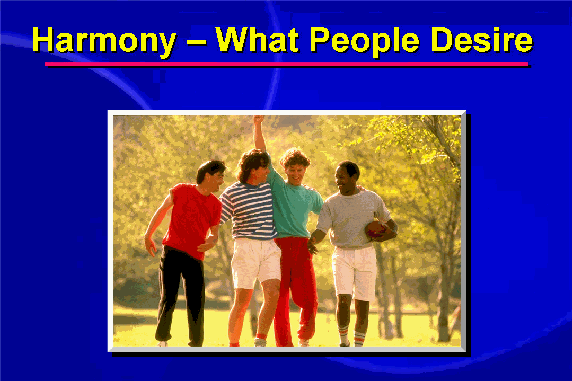
There is a basic human longing for peace and happiness. However, lasting happiness seems a distant dream when struggles keep arising within ourselves, in our families and in our larger environment. Yet, despite the seemingly ever-increasing conflict and violence, today our efforts to establish a peaceful world are greater than ever before.
From Sun Myung Moon's Philosophy of Peace, Seoul, South Korea: Sunghwa Publishing Company, 2002.
Humankind has never ceased to seek eternal and unchanging true love, true peace, true happiness and the true ideal to this day.
However, as all of you probably know, the hope of finding the necessary conditions for the ideal love, ideal happiness and ideal peace that humankind has been reaching after in today's hostile and kaleidoscopic world is lost.
We have to squarely face the fact of our having driven ourselves into a blind alley, smashing ourselves against the wall and injuring ourselves.
Reverend Moon challenges us to face the reality of the chaotic world in which we live, and to acknowledge that human efforts alone can never solve the problems. His fundamental teaching is that God, our creator, exists and is working to bring about an end to conflict and violence and to establish the world of peace that humankind longs for.
From Sun Myung Moon's Philosophy of Peace, Seoul, South Korea: Sunghwa Publishing Company, 2002.
Are there no true solutions to disentangle the great chaos of this earthly world? Must humankind abandon everything and merely await days of despair? Definitely not. There is a fundamental solution to the problem. It is based on the premise that there is an absolute God. The world that the absolute God had intended to substantiate on earth was a world of peace without disorder.
However, the solutions currently available for the problems of the world, which deny God's existence and His creation, are not viable.
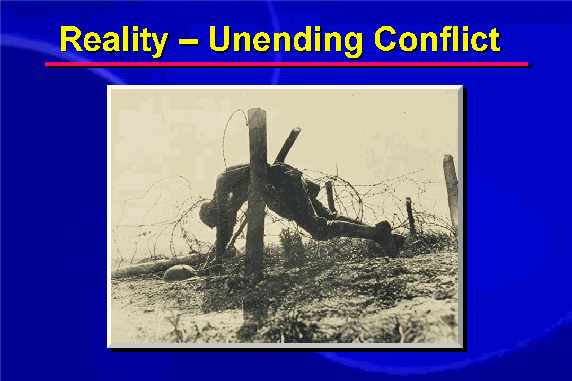
Reverend Moon's teachings address not only the ideal of living in harmony with others but also the origin, resolution, and prevention of conflict.
From Gathering for Reading and Learning Series, Volume 2 Part 1: Way of Unification, Washington DC: FFWPU, 1998.
In every human being there is mind and body. However, mind and body are fighting with each other, aren't they? Can you trust in yourself? When you cannot trust yourself, how can you trust your wife, your children, and your nation? Isn't this a fundamental problem? There were numerous saints and sages in history, but who among them declared that their mind and body were in complete unity and not in conflict? How can I lay the unified foundation in myself? This is a very important problem. If I want the unified world, then I must first establish unity in myself. It is a fallacy to welcome the unified world without having the unity in myself.
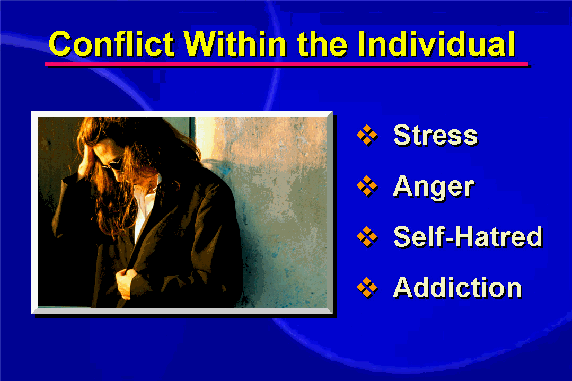
Conflict varies in scope. We want to be at peace within ourselves, but we struggle with contradictory desires and try to deal with our fears, anxieties, resentments, guilt, anger and addictions. We are torn between our ideals and the reality around us.
From Sun Myung Moon's Philosophy of Peace, Seoul, South Korea: Sunghwa Publishing Company, 2002.
When you look at your individual self, the person of your mind and the person of your body are different. These two "people" are in your individual self. If we look at the husband and wife of a family, there are actually four "people" fighting. Ten members would mean twenty "people" were fighting. Can peace and happiness be found in that family?
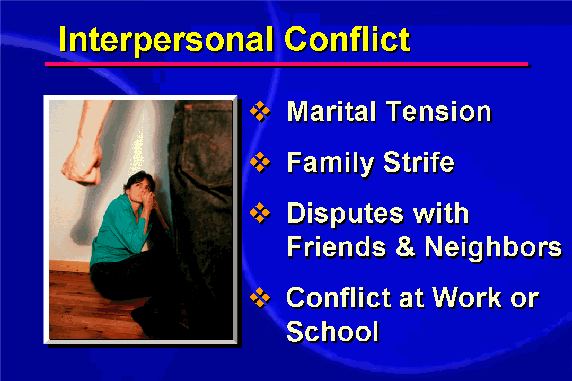
We find conflicts among family members, with friends and neighbors, at school and at work. Those who should be our partners of love may sometimes be a burden and an obstacle in our search for emotional satisfaction.
Some disputes arise from opposing interests, while others may come from envy, resentment, jealousy or even irritation caused by ordinary differences among people. Conflicts range in intensity from feelings of animosity to verbal aggression to physical violence.
From Sun Myung Moon's Philosophy of Peace, Seoul, South Korea: Sunghwa Publishing Company, 2002.
The problems of a man and a woman in a family brought about the problems of society, country and world. If the family were to be regained, all problems could be solved. The world of peace would be established soon. You should know that fighting in the family, by extension, means world war.
Without stopping the fighting in the family, no peace and happiness is possible in the world.
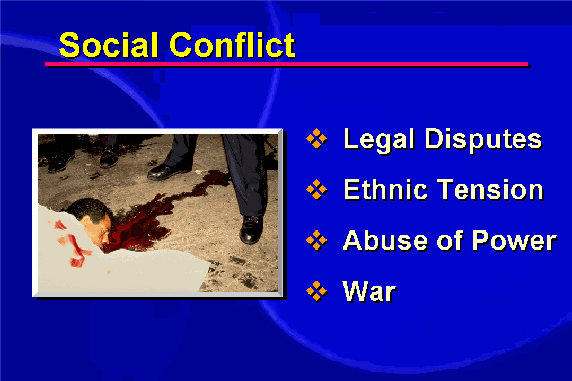
Conflicts in society take many different forms: from political, economic and ideological disputes to ethnic and religious strife. These may lead to abuse, injustice, aggression and even war. Many parts of the world experience ongoing conflict.